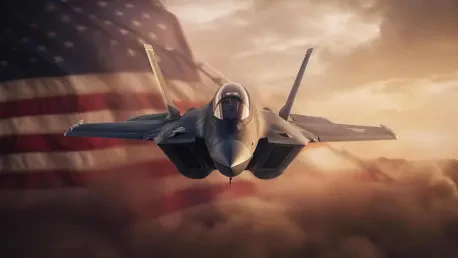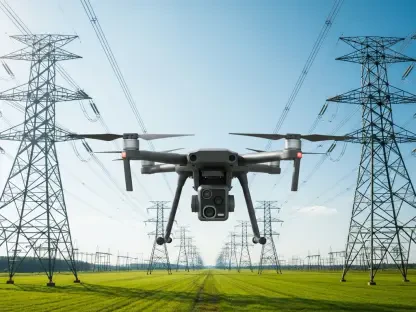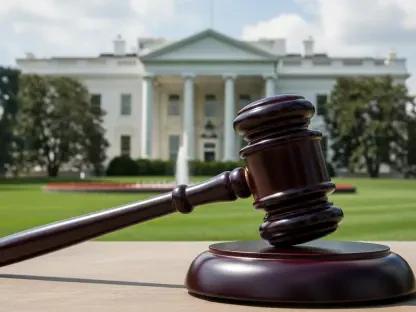In a bold move, political savant Donald Gainsborough sits down with Debora Klaine to shed light on the intricate dynamics following President Trump’s recent video post. As the leader of Government Curated, Gainsborough offers an insider’s perspective on the tangible implications of the U.S. military actions and the stirring tensions in the Middle East.
What was the reasoning behind President Trump’s decision to post the video with the song “Bomb Iran”?
President Trump’s decision to post such a provocative video seems rooted in rallying his support base with a dramatic display of military prowess. The use of a familiar tune repurposed for political messaging is emblematic of his style, aiming to convey strength and decisiveness amidst complex geopolitical tensions.
Can you explain the context in which the B-2 stealth fighter jets were used in Iran?
The B-2 stealth fighter jets were deployed as part of a strategic mission to strike critical Iranian nuclear sites. Their deployment underscores a tactical approach in targeting facilities like Fordow and Natanz, aiming to disrupt Iran’s nuclear capabilities with precision and minimal collateral damage.
Why were the Fordow fuel enrichment plant and the Natanz Enrichment Complex targeted in these strikes?
These sites are pivotal in Iran’s nuclear infrastructure, thus making them prime targets. By hitting Fordow and Natanz, the U.S. intended to impede Iran’s ability to advance its nuclear ambitions, even if the setback is temporary. The choice reflects an approach to stifle key nodes within Iran’s nuclear development chain.
How did the U.S. military choose these specific targets?
The selection of these targets likely involved a combination of intelligence assessments and strategic calculations. By targeting sites central to Iran’s nuclear program, the military aimed to achieve a significant impact with a clear message of deterrence. Each site hit carries symbolic and operational value in showcasing power while disrupting nuclear developments.
What message does President Trump intend to send with the lyrics “Went to a mosque, gonna throw some rocks, tell the Ayatollah, ‘Gonna put you in a box!’ Bomb Iran”?
The inflammatory lyrics accentuate a confrontational stance towards Iran’s leadership, personified by the Ayatollah. The song conveys a message of American dominance and readiness to challenge Iran, using culturally loaded imagery to bolster a sense of power and resolve against perceived threats.
Have there been any official statements from the White House addressing the contents of the video?
While formal statements from the White House remain elusive, the absence suggests a strategic decision to let the video speak for itself, resonating with certain constituencies without official elaboration. It could be a calculated silence to maintain ambiguity and avoid direct diplomatic repercussions.
What has the response been from Iran regarding the recent U.S. military strikes?
Iran’s response has likely been one of heightened alert and rhetorical condemnation, calling for international alliances and reinforcing its position on regional sovereignty. Such strikes intensify their defensive posture and may exacerbate hostilities, pushing Iran to expedite its security agendas.
Can you elaborate on the current tensions between Iran, Israel, and the U.S.?
The triangular tension is marked by entrenched hostilities and mutual distrust. Each nation holds its motives and redlines, with the U.S. and Israel viewing Iran’s nuclear program as a direct threat, while Iran perceives their actions as unjust aggression. This dynamic fosters a volatile environment with complex allegiances and potential flashpoints.
In what ways has President Trump addressed the conflict between Iran and Israel in the past?
Trump has often navigated this conflict by oscillating between overt support for Israel and overtures for negotiation with Iran. His administration has typically embraced a hardline stance, employing sanctions and military posturing to curtail Iran’s regional influence while promoting Israel’s security concerns.
Why did President Trump advise Israel against further bombings, according to recent reports?
Trump’s advice may be perceived as a pragmatic attempt to mitigate further escalation and regional instability. By advising restraint, he acknowledges the risks of a broader conflict that could draw in numerous state and non-state actors, possibly affecting global oil supply and economic stability.
What concerns does President Trump have about the continued fighting between Iran and Israel?
His concerns likely stem from the perpetual instability such conflicts ferment, affecting broader geopolitical alliances and economic interests. Continuous hostilities risk luring the U.S. into prolonged engagements, diverting attention and resources from other international priorities.
How did Trump describe the ongoing conflict between Iran and Israel? Could you expand on his comments made at the White House?
Trump’s remarks paint the conflict as a seemingly endless cycle of animosity, hinting at its futility and the entrenched positions of both nations. His candid comments reflect frustration, perhaps suggesting a desire for a novel approach to bridging divides or managing the fallout of such entrenched enmity.
What were the intended outcomes of the strikes on Iran’s nuclear facilities?
The intent was to deliver a tactical strike that would set back Iran’s nuclear progress, signaling Western intolerance for nuclear armament advancements perceived as threats. The strikes aim to pressure Iran into compliance and negotiations under the duress of hindered nuclear capacities.
What impact have the recent strikes had on Tehran’s nuclear program according to intelligence assessments?
Intelligence suggests the impact, while significant, offers only a temporary hindrance, buying time rather than a long-term solution. This underscores the persistent challenge of non-proliferation efforts faced by tactical strikes — useful but not definitive deterrents.
Should the reported setback of only months to Tehran’s nuclear program be seen as a success or a setback for U.S. policy?
This depends on one’s perspective. As a success, it demonstrates the capability to disrupt and delay. However, as a setback, it emphasizes the difficulties of achieving long-term results through military means alone, hinting at the necessity for sustained diplomatic engagements.
How has this military action affected international perceptions of U.S. relations in the Middle East?
The strikes amplify perceptions of American assertiveness and willingness to unilaterally act on perceived threats. This may reinforce alliances with some while alienating others, further entrenching divides and reminding the international community of the complex tapestry of Middle Eastern geopolitics.
Do you have any advice for our readers?
Stay informed and critically engaged with the sources and narratives shaping our world’s events. Understanding the multifaceted nature of international relations is crucial for making educated opinions and contributions to discussions on global policy and peace.









